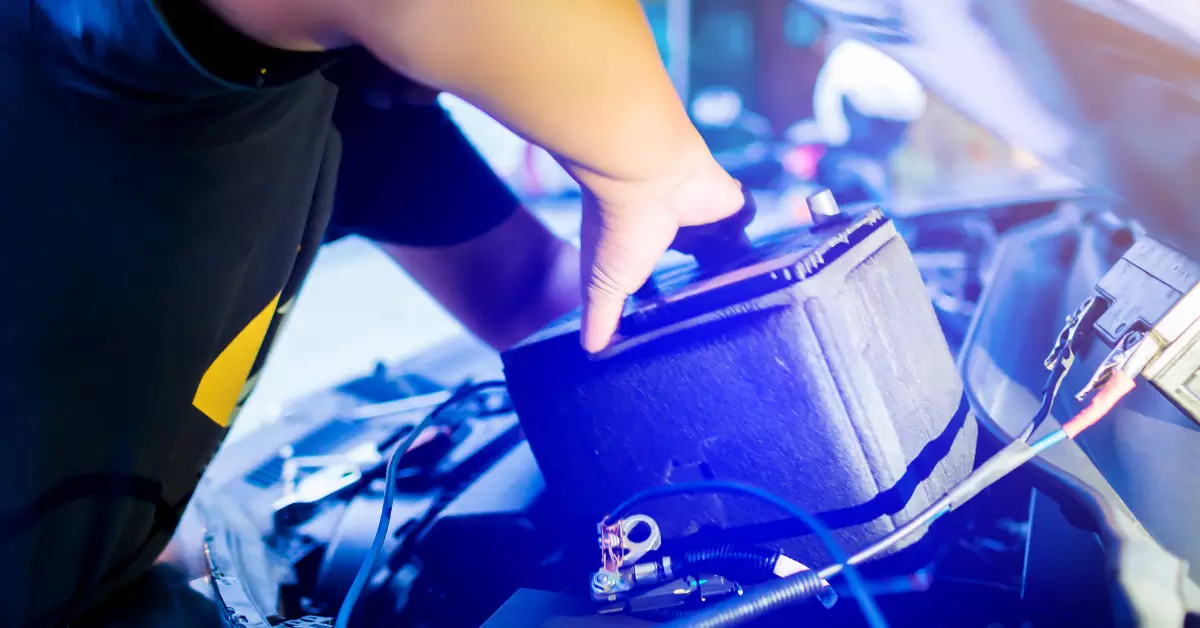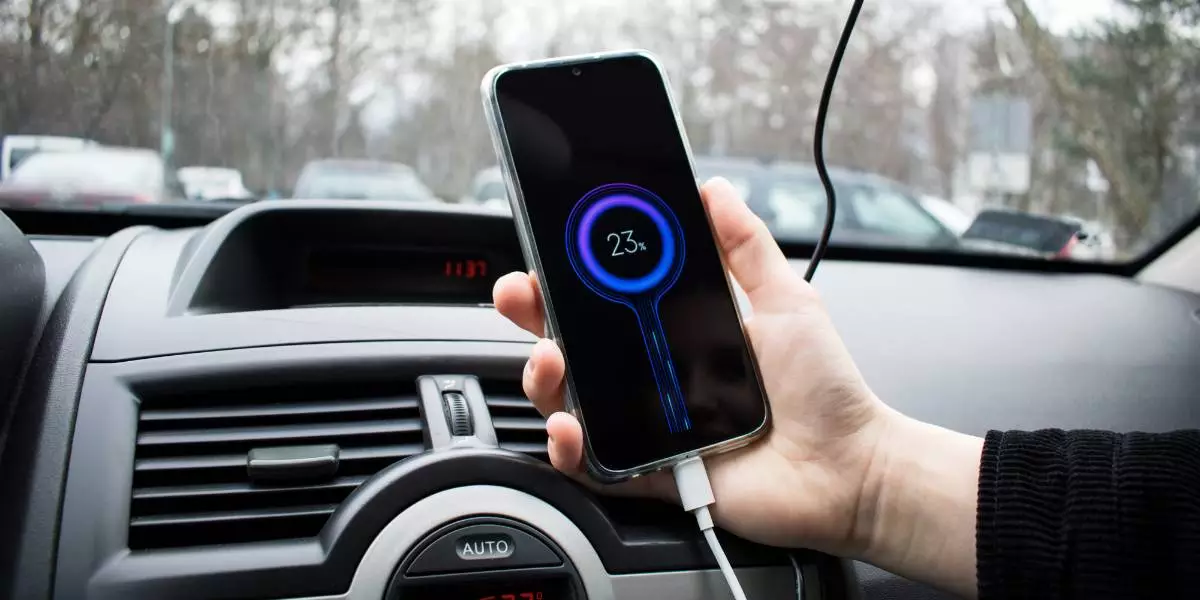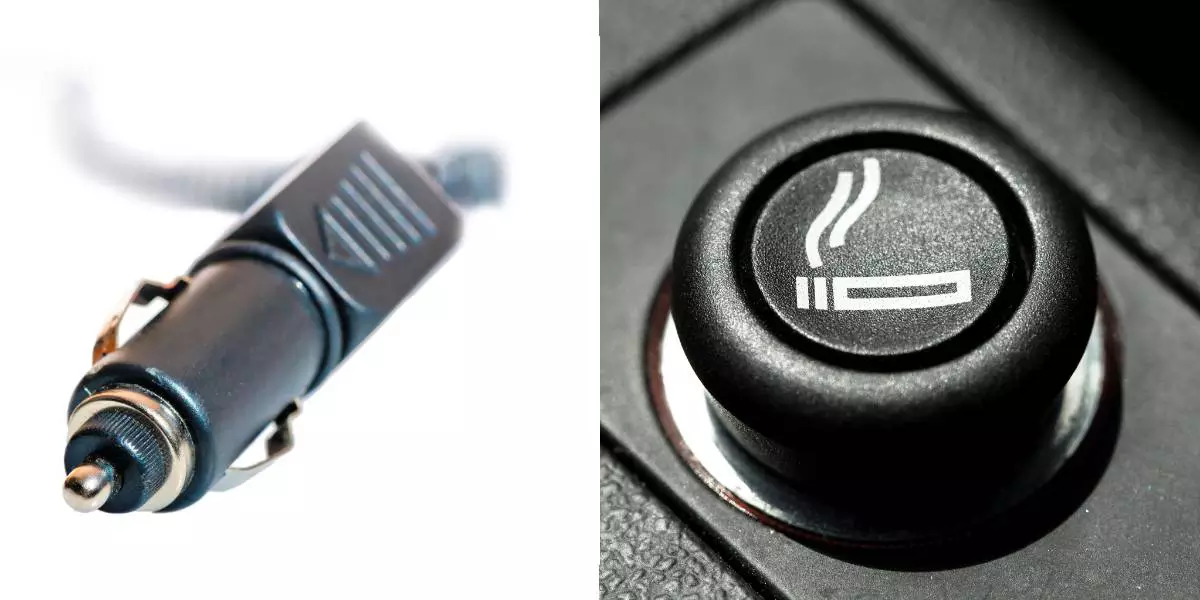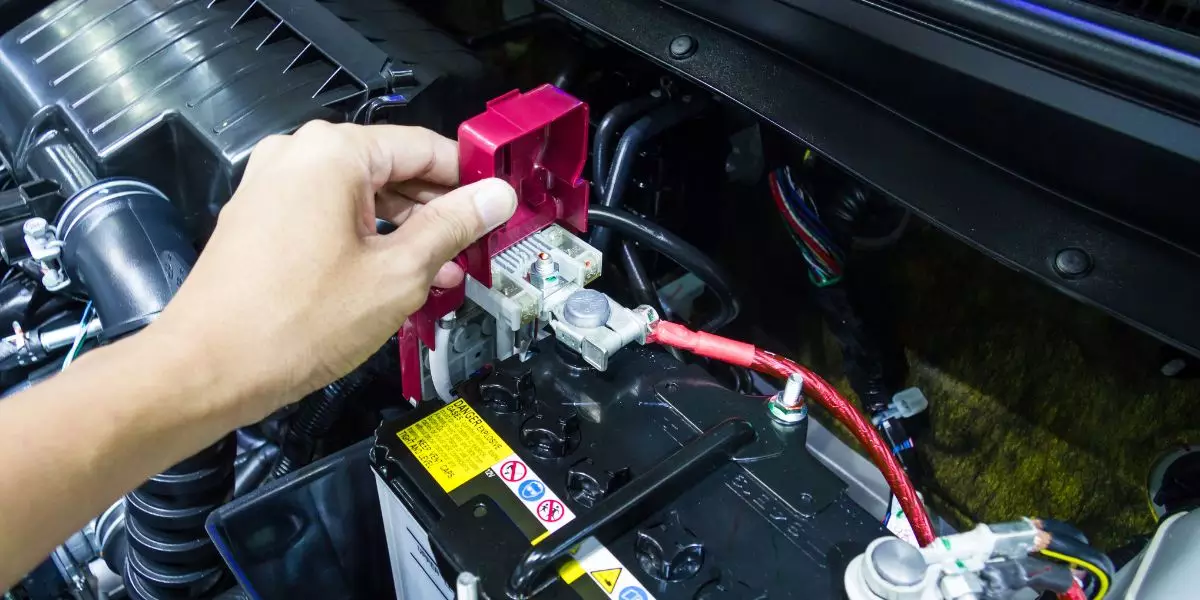So, you’re trying to do a little automotive DIY and you’re wondering…can you blow a fuse when changing a car battery?
Either you’re about to do the work and want to know what to expect, or you’ve already come across some type of issue and need to know if this is the problem. Don’t fret! We’ll walk you through both how to avoid this issue, symptoms to check for, how to diagnose the problem, and how to fix it if it’s already too late to avoid it.
Is It Possible?
Short answer: yes. Yes, you can blow a fuse when you change your car battery.
The good news? It’s avoidable!
And if it’s too late to avoid, no worries there either. You can scroll down to find easy-to-follow steps to check/diagnose a blown fuse as well as those to fix it if you choose to do so on your own.
How to Avoid a Blown Fuse
If you’re preparing to change your car battery, it’s good to know ahead of time that a bad battery can, in fact, cause a blown fuse. This can happen for a number of reasons, including the following:
- A short circuit. An electrical short within your vehicle is basically a bad connection between two conductors, which overloads the circuit and causes it to short. This can happen due to frayed wire insulation, malfunctioning electrical devices (power locking components, etc.), or a leaking conductor (being exposed or wet).
- Improper previous fuse replacement. There are so many fuse replacement options available, and many with different amperage. If a mismatch occurred previously, it will likely cause a blown fuse at some point.
To avoid a blown fuse, it’s a good idea to check your vehicle to make sure your connections, conductors, and existing fuses are all undamaged and working properly. It’s an especially good idea to check these items before taking on a DIY battery change to avoid complications.
4 Common Symptoms to Check
How do you know if you’ve got a blown battery fuse? Of course, it does vary between different vehicle makes and models, however, there are some general characteristics to watch for. A blown fuse typically responds the same way regardless of the type of vehicle.
The following are some common symptoms to pay attention to.
Symptom #1: Headlights
If the headlights and/or other vehicle lights aren’t working properly, this is a definite sign of a battery fuse issue.
Symptom #2: Dashboard Light
This may seem obvious, but it’s a good idea to check. Is the dashboard light popping up on your dashboard? If so, that’s a good indicator that not only might you have a battery problem, but you may have blown a fuse as well.
Symptom #3: Bad Smells
Bad smells – such as burnt plastic or electrical insulation – are always a sign of issues. Most often when you notice these odors alongside another of the symptoms listed, you’re looking at a battery or battery fuse problem. These smells are typical of short circuits and blown fuses, and they actually come from the plastic fuse cover melting and burning.
Symptom #4: Engine Power (or Lack Thereof)
No power in the engine is a good indicator of this type of issue as well. The fuse connects your battery to your vehicle’s other components, so If your engine won’t even crank, you may have blown a fuse.
If you notice any or all of these issues, you may have blown your battery fuse.
How can you know for sure though?
You simply need to follow the proper steps to diagnose your vehicle for a blown fuse in order to make sure you’re fixing the right issue.
Diagnosing a Blown Fuse (Step-by-Step)
When the electrical current in your vehicle goes above safe levels, the fuse’s purpose is to break that electrical circuit. This means if you have a blown fuse, it definitely needs to be replaced before your vehicle will operate again.
Here are some easy steps to check your battery fuse to nail down whether or not you’re on the right track.
Step #1: Check the Dashboard
Check the dashboard for the battery light. Do you have other lights pop up, but not the one for your battery?
This would indicate you have a different underlying issue. But, if you see the battery sign lighting up your dashboard, that’s a great place to start with your diagnosis.
Step #2: Start the Car
Next, try starting your vehicle. Does the engine crank over, or not at all?
If the lights come on but the engine won’t start, you may just be looking at a battery replacement. But if both the engine and lights are not operating, you’re most likely looking at a blown fuse.
Step #3: Check Under the Hood
Now, let’s check underneath the hood. Here, you’re checking for any obvious issues, including these:
- Is the wire in the fuse still intact or broken/frayed?
- Is the fuse cover melted or burned?
- Are there any obvious leaks?
Step #4: Check the Battery Fuse
Lastly, you’ll want to check the battery fuse itself just to make sure it did in fact blow out. What you’re actually checking here is whether or not there is any resistance between the two prongs of the fuse. No resistance indicates that the fuse is working properly, whereas resistance being present does indicate that you do, in fact, have a blown fuse.
You can check for this resistance using a multimeter.
4 Easy Steps to Fix a Blown Fuse
Now that you’ve got an idea about what type of issue you’re dealing with, how the heck can you fix it?
Don’t sweat it, it’s not too difficult.
Actually, it’s surprisingly simple.
Before getting started here is a quick list of items you may need or want during this replacement procedure:
- Rubber gloves
- A pair of pliers
- A screwdriver
- Your vehicle’s user manual
- A multimeter
Once you’ve got what you need, here are 4 easy steps to fixing that blown fuse.
Step #1: Make Sure the Vehicle is Cooled Down
Do not attempt to replace a blown battery fuse right after the vehicle has been driven. There will be too much heat generated and the car parts that your skin will inevitably come into contact with will be too hot.
It would also be a good idea to wear a pair of rubber gloves to prevent burns, scrapes, or cuts while you perform these next steps. We’d also suggest double-checking that your vehicle is in the ‘park’ position and that the emergency brake is up. Better safe than sorry, right?
Step #2: Locate the Fuse Box
For this step, it can be beneficial to have your car owner’s manual handy (most likely there will be photos). Go ahead and open up your vehicle’s hood. Once you find the fuse box, use a screwdriver to open it up.
Most car models have clear labeling; what you’re looking for once it pops open is the main battery fuse. To be absolutely sure you’re choosing the correct one, you can compare what you’re seeing with the photos in your user manual.
Step #3: Remove the Old Battery Fuse
Once you’ve located the burnt fuse, grab a good pair of pliers. Snag the end of the fuse and yank it out. Almost done!
Step #4: Install the New Battery Fuse
To install the new battery fuse, you just simply push the new one into the exact spot you pulled the old one from. Make sure it’s in there nice and tight, pushing on it if it gets stuck before it pushes all the way in. Use your multimeter to check for resistance and make sure it’s working properly.
At this point, you’ll want to try starting the engine to check that the replacement is in working order.
Final Thoughts: Can You Blow a Fuse When Changing a Car Battery?
Yes, you can in fact blow a fuse when changing a car battery, but it’s not the worst thing that can happen. If you choose to replace the battery on your own, a few simple factors can help keep you from getting into trouble in the first place.
Should you find yourself noticing issues with your vehicle during the process, it is possible that you’ve in fact blown a fuse. The first thing to remember: don’t panic!
Simply follow the easy steps above to diagnose and/or fix the problem and you’ll be good to go in no time.
Common Questions About Blown Battery Fuses
Do you still have questions? You’re not alone! Here are some common queries.
Can a Blown Fuse Harm My Car Battery?
No, a blown fuse won’t harm or drain your battery. This is because when the fuse blows, it actually interrupts the circuit of electricity in the battery. This means the broken fuse cannot drain or cause harm to the battery itself.
Is It Possible to Repair a Blown Fuse Instead of Replacing It?
While technically it may be possible to repair a blown fuse, it is not recommended. For safety concerns and the longevity of your vehicle and its other components, it is recommended to always fully replace any blown or broken fuses to ensure everything operates correctly.
Can a Blown Fuse Affect My Alternator?
Yes and no. A bad battery can cause the alternator to stop charging, and the battery fuse causes your battery not to operate. So, while your fuse is blown, your alternator will not charge. This is really a moot point, though, because you cannot operate your vehicle until the blown fuse is replaced anyways, so once you do so, the alternator should work just fine.
What does it mean when a fuse is blown?
When a fuse is blown, it means that there is a break in the circuit and the current is unable to flow.
Should I disconnect the battery before changing it?
Yes, it is recommended to disconnect the battery before changing it to avoid any electrical mishaps.
Can a blown fuse drain the battery?
Yes, a blown fuse can cause a drain on the battery since the electrical components may not be functioning properly.
Should I remove the fuse before changing the battery?
It is not necessary to remove the fuse before changing the battery, but it may be a good precautionary measure.
What does the battery fuse protect?
The battery fuse protects the electrical system of the car from any damage caused by power surges or short circuits.
How can I replace the battery fuse?
To replace the battery fuse, you need to locate the fuse panel, remove the blown fuse, and insert a new one of the same rating.
What are the symptoms of a blown battery fuse?
Some symptoms of a blown battery fuse include the car not starting, loss of power to electrical components, and the battery draining quickly.
Can a blown alternator fuse drain the battery?
Yes, a blown alternator fuse can cause a drain on the battery as the alternator is responsible for charging the battery while the engine is running.




